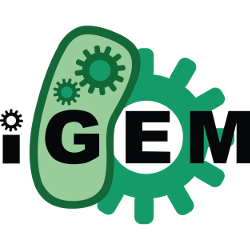CaPTURE software for Ca influx analysis
CaPTURE software was developed by the Slovenian 2016 iGEM team with an aim to analyze the calcium influx into mammalian cells upon ultrasound stimulation of mechanosensitive channels detected by the fluorescence microscopy. CaPTURE analyses the digital images from the confocal microscope to detect the cellular response to stimulation by change of the fluorescence. Software calculates the ratio of the fluorescence in two channels and it automatically scans for the response regions using the sliding window technique and provides the temporal response of cells. Track of each cell can be monitored or average calculated and different threshold and selection criteria can be set. The software was prepared for our Sonicell project, but it can be used for virtually any time dependent images the synthetic biology community.
System requirements
CaPTURE runs on any system equipped with the Java Virtual Machine (1.7 or newer), which can be downloaded at no cost from Oracle.
Installing and running
Download the CaPTURE folder and unzip it. CaPTURE is also available on GitHub. The simplest way to run the program is by double clicking on the CaPTURE.jar file, however, it might not work on some systems. Alternatively, execute the program from the command line using the following command:
To run the application from the JAR file that is in another directory, you must specify the path of that directory:
Note that on Windows the forward slash as the directory separator should be replaced with a backslash. To test the software you can download the example .lif file. Extract the file and open it with CaPTURE.
Building from source
To build the application from source, follow the given steps:
- Download CaPTURE and unzip it.
- Change the working directory to unzipped CaPTURE folder.
- Then compile .java source files to executable .class files.
- Copy bioformats_package.jar and icon.png resource file from the src directory in the scanPackage directory that was created during the compilation.
- Create a single java archive file from multiple .class files.
- Then you can start the program.
Linux & OS X:
Windows:
FAQ
I tried to open a file, but CaPTURE froze during the processing. What should I do?
Most likely your JVM ran out of memory. While it is not possible to address more than 4GB with 32 bit Java, 64 bit version is preferred. It is also possible to increase the maximum heap size using the -Xmx switch. For maximum heap size of 1024 MB the following command should be executed from the command line:
I want to open several files at the same time. How to do it?
Currently only one file can be loaded. You can, however, open a new instance of CaPTURE and analyze the second file in it.
I cannot open other microscopic file formats. Are other formats not supported?
Currently only .lif format is supported, however in the future CaPTURE will support other microscopic image formats.
I tried to compile the source using my OpenJDK implementation, but got the following error "TimeLineJForm.java:37: error: package javafx.stage does not exist".
OpenJFX is needed to compile the source code. For many platforms you can simply install (or update) JDK 8.



